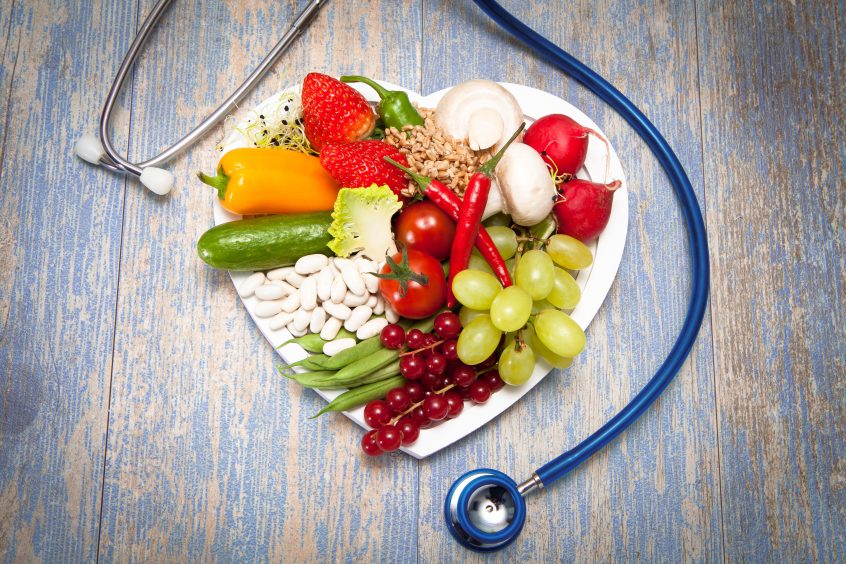
THROUGH HEALTHY EATING:
We all experience stress, and how we respond to it can impact on life. Stress management is an important aspect of wellness. It can be fought with some tactics. "Healthy Eating Habits. “is one of them.
What healthy eating does:
Healthy eating is all about feeling great, energetic, improving personality and stabilizing the mood rather than strict restrictions, starving yourself, or denying yourself the foods you love to eat. Your mood and sense of well-being are significantly impacted by your diet. Stress threshold is raised by unhealthy diet. People frequently eat unhealthy food during stress as a way to cope, but unhealthy eating habits can cause even more stress.

Read Also: Ultimate Guide to Preparing Mayonnaise Dressing for 7 Layer Salad
Planning a healthy diet to manage stress:
Eat Healthy – make the proper change. It is desirable to replace unhealthy meals in your weight-reduction plan with healthy and wholesome meals. A good example is changing from animal fats to complete milk, butter, desi ghee, goodies and healthy vegetable fat like olive oil or canola oils. Replace simple carbohydrates such as white bread and sugar with complex carbohydrates such as multigrain or whole grain products. These carbohydrates cause the brain to absorb more serotonin, better known as the happy hormone. This ensures a constant feel-good factor. One can also include stress reducing foods: lots of fruits and vegetables containing antioxidants that lower levels of the stress hormone cortisol. Focus on citrus fruits rich in vitamin C, such as oranges, as well as green leafy vegetables that contain magnesium, which reduce free radicals and prevent fatigue, headaches and stress. Detox your body from stress by keeping yourself hydrated with plenty of water and fluids like coconut water, soups, and whey water. Avoid soft drinks/sodas as they contain empty calories in the form of excess sugar and also contain carbon dioxide which further aggravates stress. Avoid fast food and processed foods as they taste delicious but are far from a healthy diet. Although they may taste good, processed and fast food are far from being a healthy diet. When under stress, it is absolutely best to stay away from tea, coffee, and energy drinks. They might only feel refreshing for a short time, but they contain thianin, which has been shown to make people more stressed. As probiotics are necessary for maintaining a normal gut flora and preventing stress-induced digestion, curd plays a crucial role in stress management. Even if you are not hungry, eat breakfast because it helps to jump-start your metabolism and stabilizes your blood sugar, which in turn lowers stress. Increase your intake of nutrients that reduce stress, while reducing your intake of substances that increase stress. Reduce your alcohol and sugar/salt intake because they deplete your body of the nutrients it needs to fight stress. Quit smoking because, despite what it may seem like, nicotine only serves to temporarily reduce stress. Eat frequently throughout the day to avoid energy spikes and crashes on a stressful day.
Stress Levels and Diet: How diets affects them.
Now, at a time when you might feel like you have little control, one thing you can control is your dietary decisions. Interesting is that these have a direct impact on your stress levels.
Let's put it this way: Those cookies and chips aren't doing you any favors. The Anti-Anxiety Diet author and integrative dietitian Ali Miller, RD, CDCES, claims that refined carbohydrates like these cause stress and anxiety by spiking blood sugar levels and then causing it to crash. Healthy food choices, such as those high in healthy fats like those found in avocados, eggs, and walnuts, have the opposite effect. According to Miller, this leads to "favorable hormone signalling in the brain, which supports satiety, mood regulation, and sleep and energy balance." When stress levels are extremely high, it's not your fault if you feel the urge to head straight for the vending machine. According to Harvard Medical School, when you're under stress, your body releases hormones that boost your cravings for unhealthy comfort foods and rev up your appetite. Stress can also cause you to lose lean muscle mass, which slows down your metabolism and raises your risk of weight gain.
Best and Worst Foods Proven to Affect Stress Management:
According to Harvard Medical School, when stress occurs, the body releases the hormones cortisol, insulin, and ghrelin, which can increase hunger and cravings for unhealthy foods. Leptin levels rise as a result of the elevated stress hormones, which aid your body in recognizing when it is full. Leptin resistance is a condition that can increase your risk of obesity, according to research published in Trends in Endocrinology and Metabolism in November 2010 on the subject.



